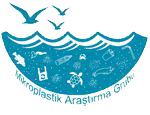Investigation of the Quantities, Distributions, Compositions of Floating Macro-Mega Marine Debris on the Southeastern Mediterranean Coasts of Turkey and Their Effects on the Transportation of Alien-Invasive Species
In this context, the quantity, distribution, and types of macro and mega marine debris found floating on the southeastern Mediterranean coasts of Turkey will be investigated.Project Manager: Prof. Dr. Cem ÇEVİK
Project Institution/Organization: Çukurova University Faculty of Fisheries
Project Summary: Determining the quantity and characteristics of floating marine debris is crucial for measuring the transport of waste from land-based and marine sources and guiding the development of relevant policies. Therefore, investigating floating marine debris is considered the most suitable method for determining the environmental status of the marine environment. In this context, the quantity, distribution, and types of macro and mega marine debris found floating on the southeastern Mediterranean coasts of Turkey will be investigated. Additionally, macro and mega debris collected from the region where these debris enter the Turkish seas via the Central Mediterranean current through the Syrian sea border (FA10, FA11, FA12) will be examined for the presence of adhesive/clinging macrofouling species. The role of this debris as a vector for the transportation of alien invasive species will also be investigated. Although there is data in the literature on the transportation of organisms by floating plastics, the number of studies specific to invasive species is limited. Furthermore, the possible sources of debris with macrofouling organisms, which groups of debris (such as plastic, processed wood trunks, buoys, etc.) are more preferred by which Mediterranean alien-invasive species will be determined. This study will be conducted by Çukurova University Faculty of Fisheries and will use the faculty’s GÖZLEM-1 boat. Sampling is planned for two years (four sampling periods) in summer and winter periods, and the project duration is planned as 32 months. The distribution of floating macro and mega marine debris will be determined using the fixed-transect observation method from the boat during calm and windless periods. In addition to this observation study, physical samples will be collected with a pelagic troll-like net to identify alien-invasive species on/in marine debris. Collected debris will be sorted for organisms and stored in ethanol for genetic and microscopic studies. Species identifications will be made under a stereomicroscope in the Ç.Ü. Faculty of Fisheries laboratory. Genetic studies to support species identifications made with the help of a microscope will be carried out in the genetics laboratory of the Ç.Ü. Faculty of Agriculture, Department of Animal Science. The polymer types of plastics analyzed with ATR FTIR device will be determined to determine whether macrofouling species prefer different plastic polymer types. This study will be the first to investigate whether floating marine debris is a vector for alien and invasive species in the Eastern Mediterranean. For these reasons, our study topic has an original value.

Bize Ulaş
